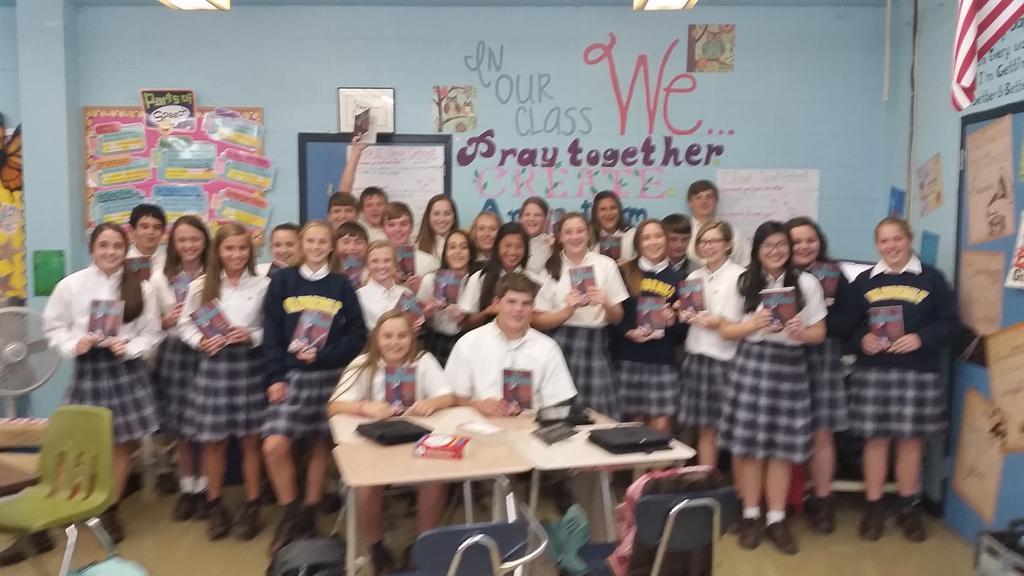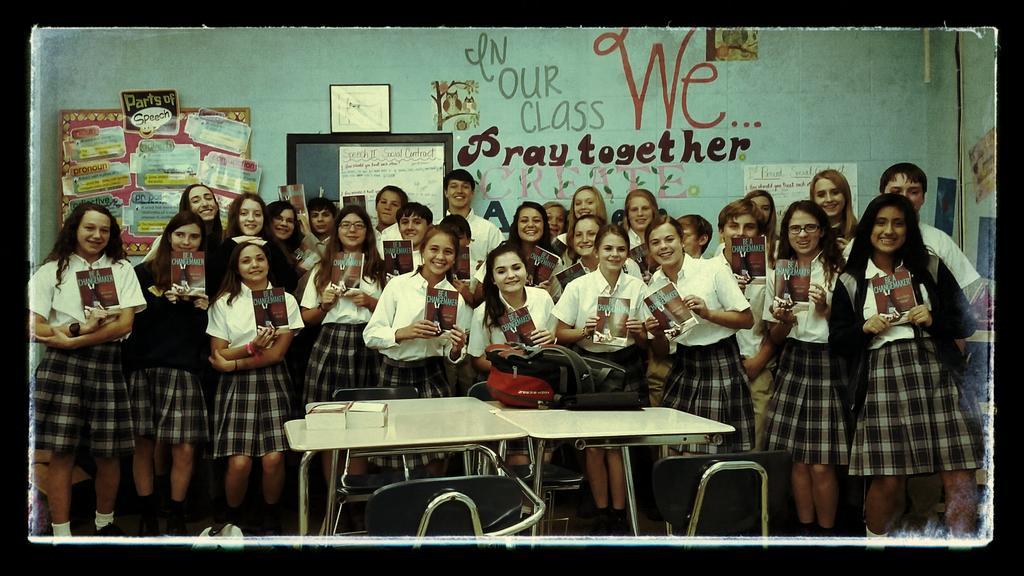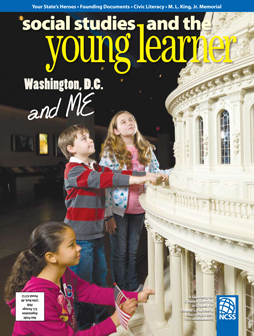It is with great excitement and gratitude that I give you this list of amazing educational resources that wonderful educators and designers have compiled to go along with TWO TRUTHS AND A LIE: IT’S ALIVE! and, hopefully, make it easier–and more fun–for teachers or librarians to put to use in the classroom!
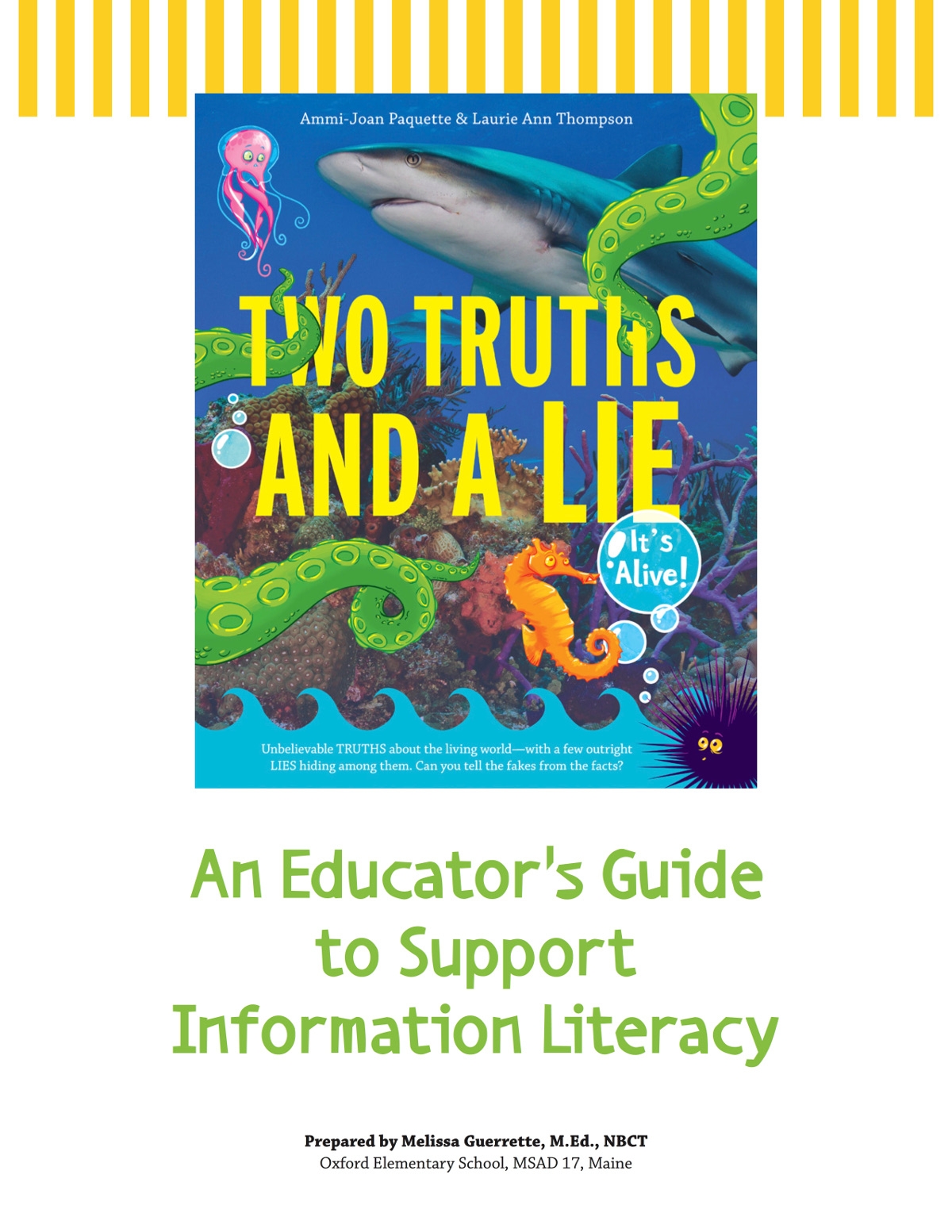 First up is the Educator’s Guide to Support Information Literacy, written by amazing 5th grade teacher Melissa Guerrette, M.Ed., NBCT. This guide is chock full of tips teachers can use to teach students how to evaluate sources and fact-check any materials they may encounter, whether they are reading the stories from TWO TRUTHS AND A LIE or just about anything else.
First up is the Educator’s Guide to Support Information Literacy, written by amazing 5th grade teacher Melissa Guerrette, M.Ed., NBCT. This guide is chock full of tips teachers can use to teach students how to evaluate sources and fact-check any materials they may encounter, whether they are reading the stories from TWO TRUTHS AND A LIE or just about anything else.It includes a printable Fact or Fiction note-taking worksheet teachers can use to help readers analyze a text to determine if it is true or false and record evidence of their thinking processes along the way.
It also has a list of the Common Core State Standards supported by the activities in the guide, AND an impressive collection of additional resources for teachers of information literacy concepts.
Download the PDF of the guide HERE.
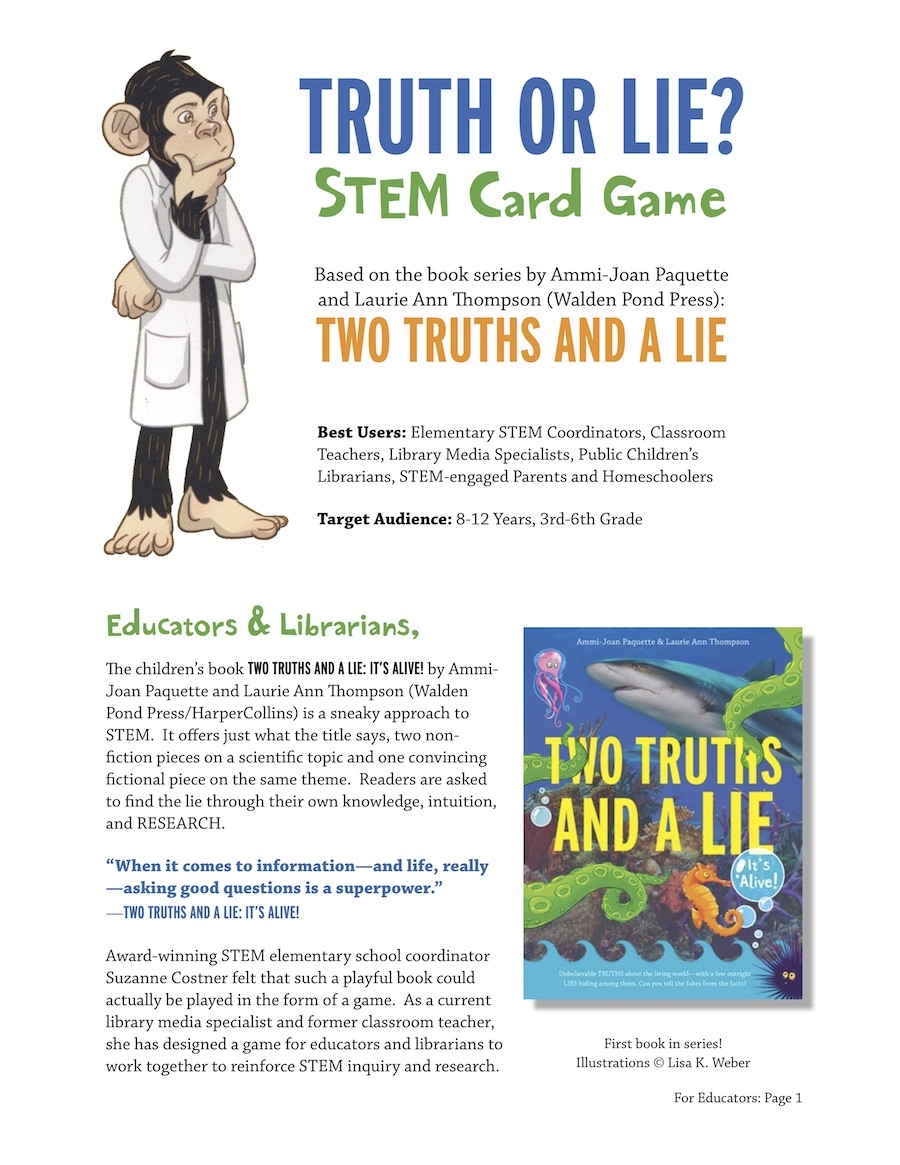 But wait, there’s more! Awarding-winning Library Media Specialist and STEM Coordinator Suzanne Costner partnered with Curious City DPW to create a STEM Card Game and companion research activities. “As a school librarian with a passion for STEM topics, I saw this book as an opportunity both to explore interesting stories and to develop crucial information literacy skills,” says Suzanne. Using scientific topics pulled from the book’s sidebars, they created a 52-card card deck that teachers can print out for their classroom. In Round 1, Player 1 reads a statement to Player 2 from a card. Player 2 decides whether the statement is a “Truth” or a “Lie.” In Round 2, players choose a research topic from their amassed cards and make three game cards of their own – two truths and one lie on their chosen topic. In Round 3, players try to outwit each other with the game cards they have created. Each new game in the classroom grows the game deck with new STEM material!
But wait, there’s more! Awarding-winning Library Media Specialist and STEM Coordinator Suzanne Costner partnered with Curious City DPW to create a STEM Card Game and companion research activities. “As a school librarian with a passion for STEM topics, I saw this book as an opportunity both to explore interesting stories and to develop crucial information literacy skills,” says Suzanne. Using scientific topics pulled from the book’s sidebars, they created a 52-card card deck that teachers can print out for their classroom. In Round 1, Player 1 reads a statement to Player 2 from a card. Player 2 decides whether the statement is a “Truth” or a “Lie.” In Round 2, players choose a research topic from their amassed cards and make three game cards of their own – two truths and one lie on their chosen topic. In Round 3, players try to outwit each other with the game cards they have created. Each new game in the classroom grows the game deck with new STEM material!
Download the PDF of the Truth or Lie? STEM Card Game HERE.
Suzanne and Curious City DPW also put together the Two Truths and a Lie: What’s Your Source?, which provides teachers with links for students to explore for topic validation and gives them the chance to compare and cross-check the information before making their final decision on whether the stories in TWO TRUTHS AND A LIE: IT’S ALIVE! are fact or fiction; Two Truths and a Lie: Reaching for Resources, which provides educators with links connected with the book’s chapters to build information literacy lessons upon, and the Two Truths and a Lie: Rationale, Curriculum Connections & Grading Rubric.
To go along with all of this excitement, for a limited time Curious City DPW is hosting a GIVEAWAY! Read all about it and ENTER HERE, but hurry! Winners will be announced December 5, 2017!
I’m super excited about how these might spur classroom discussions around STEM topics and information literacy. If you use either of them with students, please let me know! I’d love to hear about how teachers are putting into practice and any suggestions for how it could be improved. And, of course, pictures would be fantastic!

